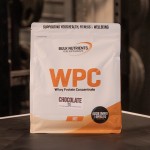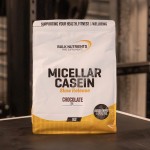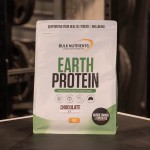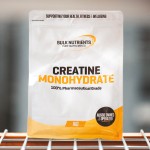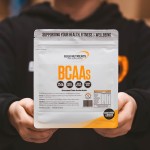What are the Best Supplements for Muscle Growth?

What are the best supplements for muscle growth?
It’s a question asked time and time again as we continue to work out in the quest for peak fitness and muscle growth.
Supplements can assist in providing extra nutrients missing from our diet.
This article will take you through the best supplements for muscle growth when you’re hoping for quick gains.
We’ll talk about protein powder, creatine, and branched-chain amino acids (BCAAs) and why they’re the best supplements for muscle growth.
Protein for Muscle Growth
Protein powder is one of the most popular supplements for muscle growth.
Always getting your protein from food can become expensive, take a lot of time to prepare, and be inconvenient to track down when you’re busy.
Protein powder is one of the best supplements for muscle growth because you require between 1.7 and 2.6 grams of protein per kilogram of body weight per day.
For example, a customer weighing 80kg will need roughly 160 grams of protein per day.
Protein powder is high in the muscle-building amino acid leucine, which is why it is one of the best supplements for muscle growth on the market – you can’t grow muscle without adequate leucine!

Different Types of Protein Powder for Muscle Growth
Protein powders are supplements made from concentrated sources of protein. The most common types include:
- Whey Protein: Whey is a fast-digesting protein derived from milk and is one of the most popular forms of protein powder for muscle growth. High in essential amino acids, it is one of the best supplements for muscle growth for bodybuilders.
- Casein Protein: A slow-digesting protein also derived from milk. Often consumed before bed, it provides a sustained release of amino acids while sleeping, making it one of the best supplements for muscle growth overnight.
- Plant-based Protein: This includes proteins derived from plants such as peas, brown rice, soy, and help. These options are popular among people who avoid dairy products for lifestyle reasons, intolerances, or allergies, allowing them to supplement their intake and grow muscle.
Tips to Select Protein Supplements for Muscle Growth
Each type of protein powder has its unique benefits, suitable for different goals and lifestyles. Factors such as dietary restrictions, personal taste preferences, and nutrient profiles are important to be considered when choosing what’s right for you.
Bulk Nutrients’ Whey Protein Concentrate for example offers 22 grams of protein per 30 gram serving, making it easier for you to reach your required levels of protein.
Mixed with water or milk according to serving directions, it can be consumed at any time of the day making it one of the best supplements for muscle growth – but it doesn’t replace whole foods containing protein like chicken, beef, fish, and eggs.
Creatine Supplements for Muscle Growth
When it comes to increasing muscle strength and size, creatine is one of the most researched, effective, and best supplements for muscle growth (let alone one of the best supplements altogether).
An organic compound, creatine allows your muscles to produce more adenosine triphosphate (ATP), a high-powered, energy-carrying molecule that provides a strong spark during exercise.
Effectively, using creatine means you get the energy to lift more!
Progressive overload (adding more weight to the bar) is a principle of muscle growth, therefore creatine helps us get stronger and may help us with muscle growth.
Researchers have examined creatine and muscle growth directly and have found those who take creatine can double the amount of muscle they gain, compared to those who don’t!
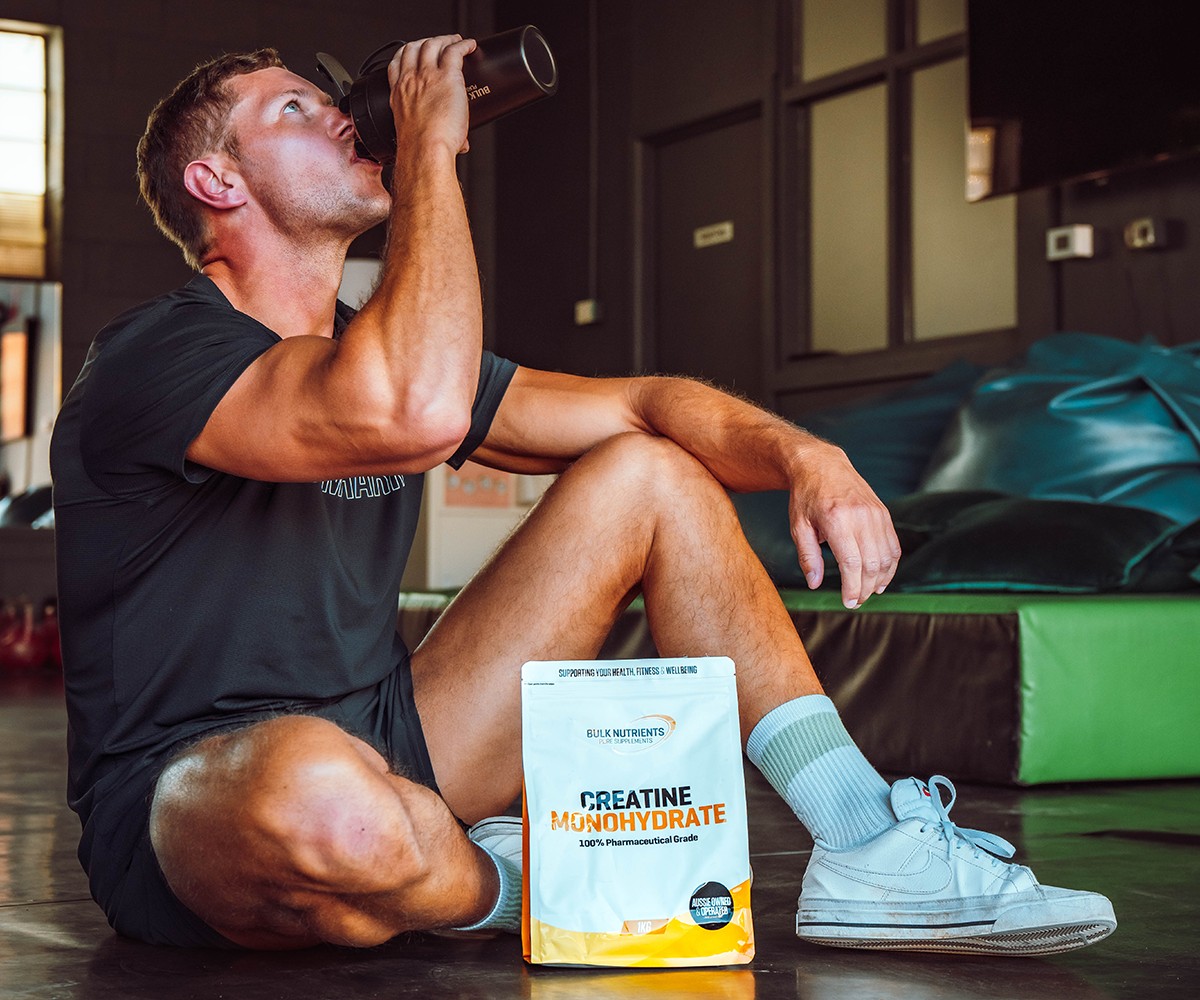
How Much Creatine Do You Need for Muscle Growth?
The Australian Food Standards Code allows for a single daily dose of 3 grams of creatine, though studies have been done on amounts well in excess with no ill effects.
Commonly, users load up on creatine for the first week to allow for an oversaturation in their muscles, before returning to a smaller maintenance serving.
Let’s say Bulk Nutrients customer ‘Andrew’ wants to reap the muscle-growing benefits of creatine as quickly as possible. In this case, he would need to:
- Load up on creatine for 7 days, taking 25 grams per day
- After 7 days, take just 3-5 grams of creatine per day
This will boost his energy and the regeneration of ATP during training.
While creatine loading isn’t necessary for muscle growth, loading will allow muscles to be saturated with it faster.
Our creatine monohydrate provides 3 grams per serving, ensuring you have enough for whatever stage you’re at in your creatine journey.
The science is clear: you should consider creatine as one of the best supplements for muscle growth if you’re serious about maximising your efforts!
Best Types of Creatine for Muscle Growth
There are several types of creatine supplements for muscle growth available, including:
- Creatine Monohydrate: This is the most common form of creatine, the most thoroughly researched, and believed to be the most effective form of creatine for increasing muscle mass and size.
- Creatine Ethyl Ester (CEE): This form of creatine is bonded to an ester molecule, which is intended to improve its absorption and bioavailability.
- Creatine Hydrochloride (HCL): Bonded to hydrochloric acid, this form of creatine is intended to improve its solubility in water and reduce side effects such as bloating.
- Creatine Nitrate: This form of creatine is bonded to nitric oxide, which is intended to improve blood flow and oxygen delivery to muscles during exercise to aid muscle growth.
Tips for Selecting and Using Creatine for Muscle Growth
It's important to note that not all forms of creatine have been extensively researched, and some may not be as effective as creatine monohydrate for muscle growth.
We recommend using Creatine Monohydrate and consuming it daily in a shake as a muscle-building supplement.
Branched Chain Amino Acids For Muscle Growth
Branch Chain Amino Acids (BCAAs) are essential amino acids that play a crucial role in muscle growth and recovery.
BCAAs, consisting of leucine, isoleucine, and valine, make up about one-third of muscle protein and are considered the most important amino acids for gym-goers, athletes, and bodybuilders alike.
As mentioned, leucine is particularly important as it stimulates muscle protein synthesis, which is the process by which you build new muscle tissue.
Including a BCAA supplement for muscle growth in your routine can assist in repairing existing muscle and stimulating growth.
Different Types of BCAAs
There are several forms of BCAA supplements available, including:
- BCAA powders: These are often flavoured and can be mixed into drinks or shakes to help muscle building.
- BCAA capsules: Convenient for those who don't like the taste of BCAA powders or who prefer to take supplements in pill form.
- BCAA drinks: Pre-made BCAA drinks that come in a variety of flavours and can aid muscle growth.
Tips For Selecting BCAAs For Muscle Growth
BCAAs are some of the best supplements for muscle growth in Australia, but selecting the right one to meet your needs is important.
When selecting a BCAA supplement it’s important to consider the ratio of the three BCAAs, as well as the quality of the ingredients and manufacturing processes.
Some BCAA supplements can contain fillers and artificial sweeteners (which some might not like in their supplements for muscle growth), and/or they may also contain other ingredients that could negatively impact athletic performance.
When using BCAA supplements for muscle growth, it’s recommended to take them either before, during, or after exercise in protein shakes for optimum muscle gain.
The amount of BCAAs to be taken can vary depending on the individual and their training goals.
Additionally, it’s important to stay hydrated when using BCAAs for muscle growth, as they can cause dehydration if not taken with enough water.
Conclusion
To put it simply – Protein Powder, Creatine Monohydrate, and Branched-Chain Amino Acids (BCAAs) are the best supplements for muscle growth.
Protein is a popular supplement for muscle growth due to its high concentration of leucine. There are different types of protein powders such as whey, casein, and plant-based.
Creatine is one of the most effective supplements for muscle growth as it allows the muscles to produce more ATP, providing a strong spark during exercise. Creatine monohydrate is the most common and thoroughly researched form of creatine, and it is recommended to take a single daily dose of 3 grams.
BCAAs are essential amino acids that support muscle growth and recovery, and should be taken before and after a workout to support muscle growth.
By sticking with Protein Powder, Creatine Monohydrate, and BCAAs you’ll be making the most of the best supplements for muscle growth.

Nick is Bulk's Customer Service team's Technical Support Officer.
Which is our way of saying he's the guy whose job it is to answer your obscenely technical supplement questions.
More about Nick TelescaReferences:
- Carbone, J.W. and Pasiakos, S.M. (2019). Dietary Protein and Muscle Mass: Translating Science to Application and Health Benefit. Nutrients, 11(5), p.1136.
- Wolfe RR. Branched-chain amino acids and muscle protein synthesis in humans: myth or reality? J Int Soc Sports Nutr. 2017 Aug 22;14:30. doi: 10.1186/s12970-017-0184-9. PMID: 28852372; PMCID: PMC5568273.
- Casey, A. and Greenhaff, P., 2000. Does dietary creatine supplementation play a role in skeletal muscle metabolism and performance?. The American Journal of Clinical Nutrition, 72(2), pp.607S-617S.
- Cooper, R., Naclerio, F., Allgrove, J. and Jimenez, A., 2012. Creatine supplementation with specific view to exercise/sports performance: an update. Journal of the International Society of Sports Nutrition, 9(1).
- Hall, M. and Trojian, T.H. (2013). Creatine Supplementation. Current Sports Medicine Reports, [online] 12(4), pp.240–244. Available at: https://journals.lww.com/acsm-csmr/Fulltext/2013/07000/Creatine_Supplementation.10.asp
- Hickner, R.C., Dyck, D.J., Sklar, J., Hatley, H. and Byrd, P. (2010). Effect of 28 days of creatine ingestion on muscle metabolism and performance of a simulated cycling road race. Journal of the International Society of Sports Nutrition, 7(1).
- Kreider, R.B., Kalman, D.S., Antonio, J. et al. International Society of Sports Nutrition position stand: safety and efficacy of creatine supplementation in exercise, sport, and medicine. J Int Soc Sports Nutr 14, 18 (2017). https://www.tandfonline.com/doi/full/10.1186/s12970-017-0173-z
- Tipton KD, Wolfe RR. Protein and amino acids for athletes. J Sports Sci. 2004 Jan;22(1):65-79. doi: 10.1080/0264041031000140554. PMID: 14971434.
- Witard, O.C., Jackman, S.R., Breen, L., Smith, K., Selby, A. and Tipton, K.D. (2013). Myofibrillar muscle protein synthesis rates subsequent to a meal in response to increasing doses of whey protein at rest and after resistance exercise. The American Journal of Clinical Nutrition, 99(1), pp.86–95.
- Wu, G. (2016). Dietary protein intake and human health. Food & Function, 7(3), pp.1251–1265.
Related Blogs

Is Cardio Detrimental to Maximum Muscle Growth?
Posted by Dayne Hudson
Estimated reading time: 5 minutes
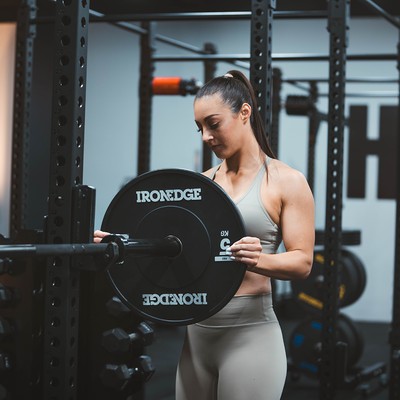
How Much Muscle Can Women Gain Naturally?
Posted by Dayne Hudson
Estimated reading time: 4 minutes

The Secret to Building Serious Muscle Mass
Posted by Bulk Nutrients
Estimated reading time: 6 minutes
